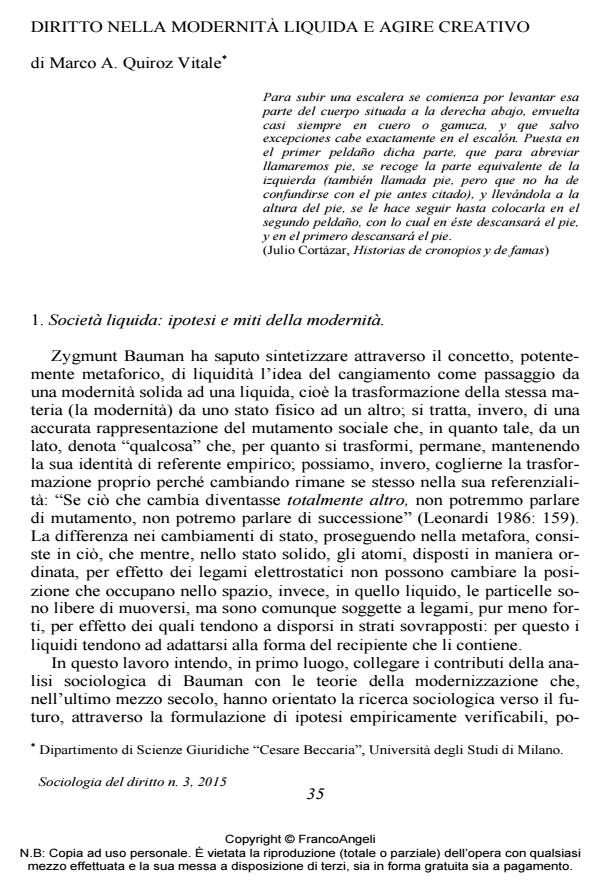Law in liquid modernity and creative action
Journal title SOCIOLOGIA DEL DIRITTO
Author/s Marco A. Quiroz Vitale
Publishing Year 2016 Issue 2015/3
Language Italian Pages 27 P. 35-61 File size 302 KB
DOI 10.3280/SD2015-003003
DOI is like a bar code for intellectual property: to have more infomation
click here
Below, you can see the article first page
If you want to buy this article in PDF format, you can do it, following the instructions to buy download credits

FrancoAngeli is member of Publishers International Linking Association, Inc (PILA), a not-for-profit association which run the CrossRef service enabling links to and from online scholarly content.
Characteristics of liquid modernity are a weakening of the spatial dimension in social life and the increasing importance of the flow of time and of change. The author’s hypothesis is that the time has come for law to be liquefied, too. In other words, he theorises that law, too, has been caught up in the same social processes that have modernised the fields of economics, politics and culture, manifesting acute characteristics of legal pluralism. In addition, convergent indicators gleaned from studies of economic and social sciences provide grounds for believing that a new creative kind of action is taking hold in liquid modernity. Liquid law thus paves the way for three possibilities: that of elective action, in which the range of individuals’ choices gradually expands, that of autonomous action, in which the criteria of choice are established by the acting agents themselves, and, finally, that of creative action on the part both of the addressees of the rules and of lawyers.
Keywords: Liquid society - Legal system - Legal pluralism - Creative action
Marco A. Quiroz Vitale, Diritto nella modernità liquida e agire creativo in "SOCIOLOGIA DEL DIRITTO " 3/2015, pp 35-61, DOI: 10.3280/SD2015-003003